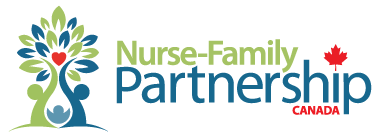Information Box Group
The original NFP program materials were developed to meet the needs of families living in the United States. Adaptation of NFP materials for the Canadian context is an ongoing collaboration between public health management, front-line public health nurses and nurse researchers to integrate feedback from those with clinical experience delivering NFP, with existing best practices and research evidence. This work has been led by a team of researchers from the School of Nursing and the Offord Centre for Child Studies at McMaster University, in collaboration and consultation with existing NFP license holders in Canada.
Adaptation of NFP to the Canadian context began in 2008 (see description of pilot study), but is ongoing and continues today. NFP materials adapted to date include visit-to-visit guidelines, home visit facilitators and corresponding nurse instructions, program implementation manuals, nursing assessment forms, as well as a Canadian NFP curriculum to guide public health nurse and supervisor education. Specific content adaptations to NFP materials have involved the integration of Canadian standards of practice and best practice guidelines, augmentation of materials to meet localized needs or priority issues, and integration of new NFP innovations.
Funding to support the work of adapting or developing Canadian NFP program materials has been provided by the Public Health Agency of Canada, the Ontario Trillium Foundation, the Ontario Ministry of Health and Long-Term Care, as well as support from the Ontario Nursing Secretariat, and funds from the Provincial Centre of Excellence for Child and Youth Mental Health at Children’s Hospital of Eastern Ontario (CHEO).

Information Box Group
Canadian Nurse-Family Partnership Education (CaNE) Pilot Project
The development of a Canadian model of Nurse-Family Partnership Education was another key priority in the ongoing work to adapt this innovation to the Canadian context. To deliver NFP, public health nurses and their supervisors must complete core NFP education. Currently, there are two models of NFP core education in Canada, one being delivered in British Columbia; and the Canadian Nurse-Family Partnership Education model developed, piloted and evaluated in Ontario.
In 2016, the Middlesex-London Health Unit received a Local Poverty Reduction Fund grant from the Ontario Trillium Foundation to partner with McMaster University and two other health units (Toronto Public Health and York Region Public Health) to develop, pilot, and evaluate a Canadian model of NFP education for nurses and supervisors. In 2018, this pilot project expanded to include a fourth public health unit in the Regional Municipality of Niagara.
Building on foundational educational materials and resources provided by the NFP National Service Office (US), the Family-Nurse Partnership (FNP) National Units in England and Scotland, and from the NFP program in British Columbia, combined with research findings from the British Columbia Healthy Connections Process Evaluation, a model of NFP education was developed. The goal was for this educational program to be evidence-based, theoretically informed, reflect the values and principles of the Canadian public health system of services, support the development of public health nurse competencies, and be sustainable (e.g., able to be delivered to NFP public health nurses and supervisors across Canada in a cost-effective and flexible manner).
The Canadian NFP model of education, developed and piloted in the CaNE pilot project, has two streams: 1) core NFP education for all public health nurses and supervisors; and 2) supervisor-only education. In the CaNE pilot project, core NFP education is divided into three phases: 1) NFP Introduction, 2) NFP Fundamentals, and 3) NFP Integration.
The overarching goal of the CaNE project is to explore the acceptability of this new education program to the public health nurses and supervisors in Ontario who complete the three-phase education program and then to understand how this education supports these teams to implement the intervention with fidelity to the NFP core model elements within their local communities. This curriculum is being piloted with a small sample of public health nurses and supervisors from four health units in Ontario between 2016-2018.
The evaluation focuses on fidelity to the core model elements, with a specific focus on the following fidelity indicators: 1) public health nurse and supervisor caseloads; 2) duration of the program; 3) service dosage to the program; 4) content of home visits; and 5) client eligibility. In addition, participant feedback will be sought regarding content and delivery methods, effectiveness of the model in improving knowledge, skills and attitudes, and integration of new skills into professional practice. This project will be completed in December, 2018.
For more information about CaNE, please contact Dr. Susan Jack, School of Nursing, McMaster University (jacksm@mcmaster.ca) or Heather Lokko, Middlesex-London Health Unit (heather.lokko@mlhu.on.ca).

